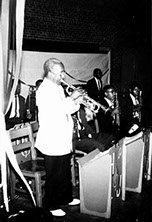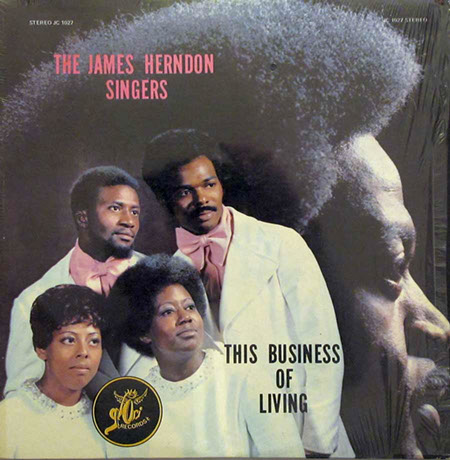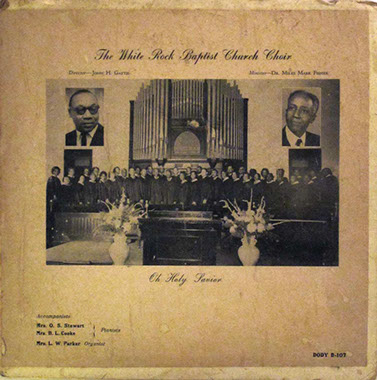

Many of Durham’s African American soul music performers of the 1960s and '70s trace their interest in music to key local influences from earlier decades.
First, the public schools—especially the historic African American Hillside High School—gave young Durhamites access to first-rate musical education under the guidance of teachers such as Joe Mitchell and Clarke Egerton, Jr. Second, black churches, with their gospel choirs, were crucial places for young musicians to develop their skills. Finally, hometown heroes such as Shirley Caesar, Clyde McPhatter, and Pigmeat Markham achieved national success as performers in the 1950s and 1960s, serving as role models to Durham musicians who hoped to make the big time.

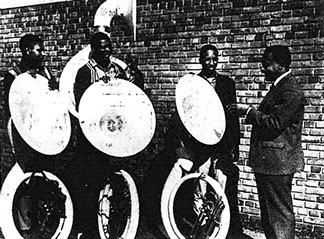
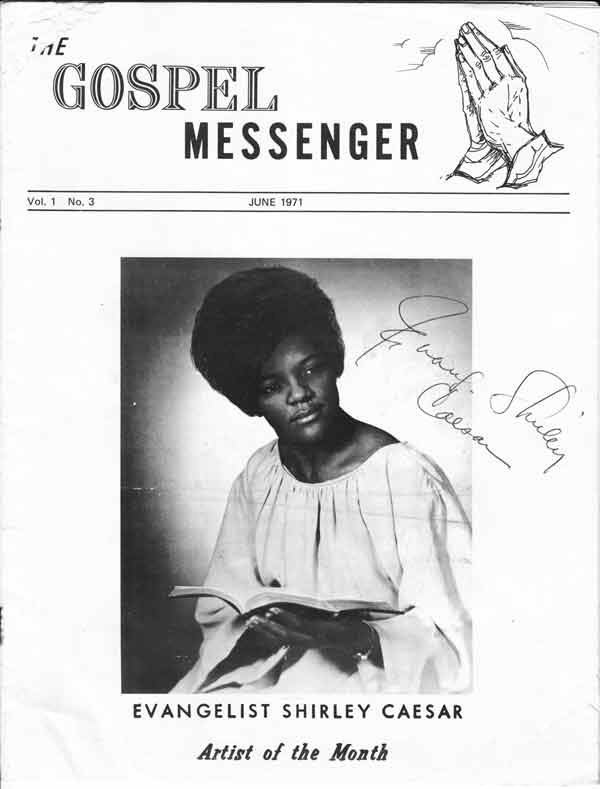
Gospel music thrived at local African American churches like St. Joseph’s A.M.E., Mount Vernon Baptist, Mt. Zion Baptist, West Durham Baptist, White Rock Baptist, St. Paul Baptist, and the Russell Memorial C.M.E. Church. Gospel’s spirited call-and-response, multi-part harmony vocals, and syncopated rhythms gave many musicians a blueprint for secular soul music. Some performers, such as Oren Marsh (pictured below, back row, third from right), sang with gospel choirs and also performed with soul acts outside of the church like Tracy and the Jammers.
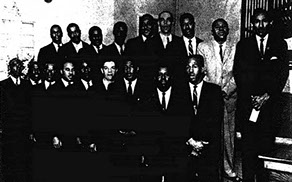
The White Rock Baptist Church, with minister Dr. Miles Fisher and director-organist John H. Gattis, released this record of gospel choral numbers around the early 1960s.





Shirley Caesar, known as the “First Lady of Gospel,” was born in Durham in 1938. She began her recording career at age 11 in 1950 with the Chicago gospel performers Albertina Walker and the Caravans. Caesar left the Caravans to launch her solo career in 1966, and since then she has earned eleven Grammy awards for her work.
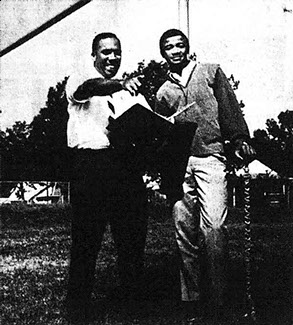

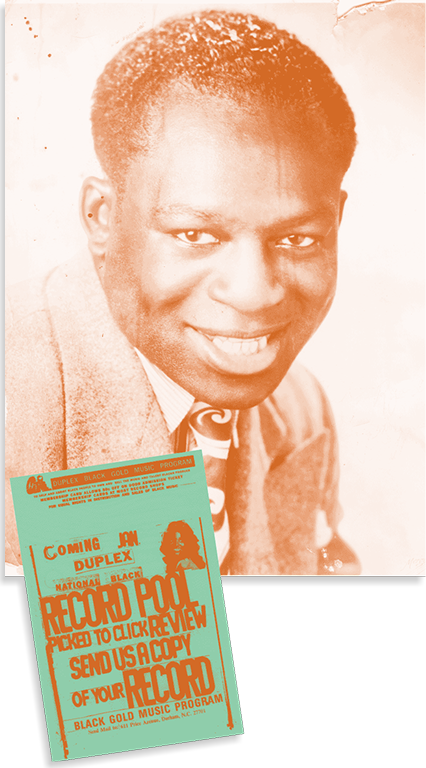
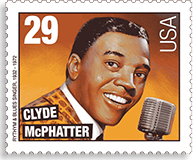

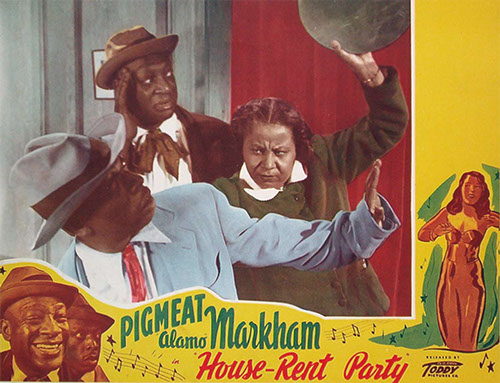



Dr. Joseph T. Mitchell was the band director at Hillside High School for much of the 1960s. In 1967, he became the director at North Carolina College (now NCCU). Along with Clarke Egerton, Jr., his successor at Hillside, Mitchell educated countless local musicians and also played saxophone in groups outside the classroom such as the Hillside Joymakers.
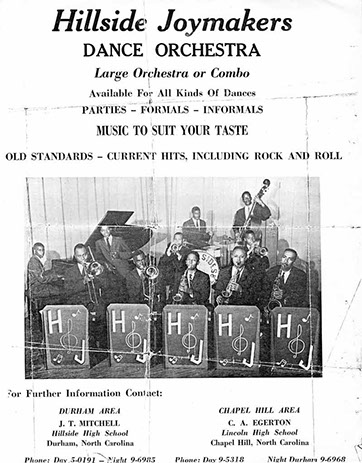
Clarke Egerton, Jr. served as Hillside High School band director from 1967 until 1997. A native of Durham, Egerton graduated from Hillside himself in 1950. Before returning to his alma mater, he also taught band in Chapel Hill and Warrenton, North Carolina.
The Hillside Band recorded this collection of choral and marching numbers under the direction of Joseph Mitchell in the mid-1960s. Performers on the record include future soul musicians James Brown (not to be confused with the “Godfather of Soul”), Peter Joyner, William McLaughlin, David Parker, Jesse Suggs, James Toomer, and Nathaniel Walker.
Philmore “Shorty” Hall was band director at Hillside High School in the 1950s. With his best students, Hall formed the Hillside Joymakers, a big band outfit that played at area dances. By the mid-1960s, Joseph Mitchell and Clarke Egerton, Jr. assumed co-leadership of the band. The flyer below shows future soul musicians Marion “Mouse” Wiggins on piano, vocalist Anderson Council, and Larry Scurlock on bass.
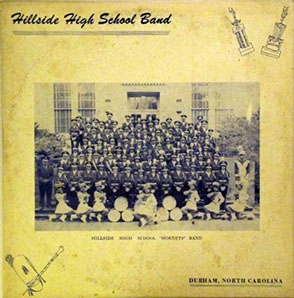
Born in Durham in 1904, Dewey “Pigmeat” Markham grew up in the Hayti neighborhood. By the 1920s he was touring with the famed blues singer Bessie Smith. Throughout his career, Markham sang frequently at Harlem’s Apollo Theater, acted in movies, and was a regular guest on the Ed Sullivan Show on TV. In the late 1960s, Markham enjoyed a revival with his funky comedy song “Here Comes the Judge,” which foreshadowed rap music.
Jimmy Liggins, born 1922, recorded a number of early R&B and jump blues hits in the 1950s, including “I Ain't Drunk” and “Cadillac Boogie.” Although his performing career fizzled out later that decade, by the start of the 1970s Liggins had relocated to Durham, where he helped open Snoopy’s Records and launched a local branch of his national Duplex record label. In addition to starting what he called the Black Gold Music Program, featured in the advertisement at left, Liggins tirelessly promoted local groups like Liquid Pleasure from Chapel Hill and the Black Experience Band.
Reverend James Herndon was the pianist for the gospel group Albertina Walker and the Caravans in the 1960s. After leaving the Caravans, he released records with his own group, the James Herndon Singers, and he has also served as the organist for Durham's Mt. Vernon Baptist Church.
Born in 1932 in Durham, Clyde McPhatter sang at Mt. Calvary Baptist Church until his family moved to New Jersey in 1945. In the 1950s, he became the lead vocalist of Billy Ward and His Dominos and, most famously, the Drifters. As the lead vocalist of the Drifters, McPhatter produced national hits like “Money Honey.” His best known song as a solo artist was “A Lover’s Question.”

